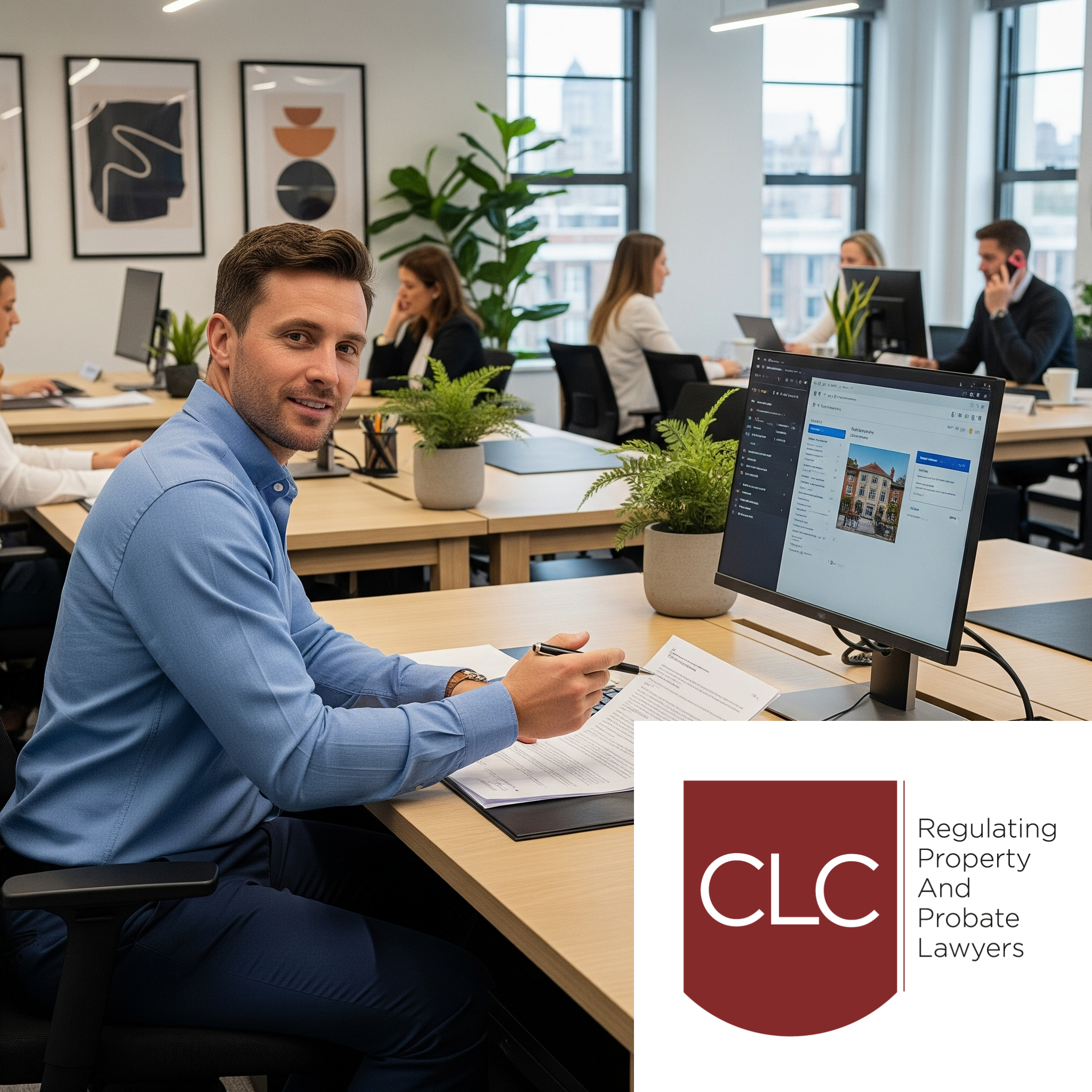From Student to Specialist: Your Career Path After Gaining a Conveyancing Qualification
Licensed Conveyancers are qualified, professional property lawyers who specialise in the legal aspects surrounding buying and selling property in England and Wales.
Published: 01 July 2025
You've dedicated yourself to your studies, completed your rigorous conveyancing course, and successfully obtained your conveyancing qualification through the Council for Licensed Conveyancers (CLC) route. Congratulations! This significant achievement marks not just the end of your training, but the exciting beginning of a dynamic and rewarding career.
But what does life look like after qualification? Does your CLC conveyancing qualification open as many doors as a solicitor's? Can you truly build a thriving, independent career? The answer is a resounding yes. Let's explore the robust career progression, specialisation opportunities, and job prospects that await you as a fully qualified Licensed Conveyancer.

Your Immediate Path: Specialist Property Professional
Upon gaining your conveyancing qualification, you step into a role as a specialist property lawyer. Your initial positions might include:
- Licensed Conveyancer: Directly managing caseloads of residential and/or commercial property transactions from start to finish.
- Senior Conveyancer/Team Leader: With experience, leading teams and handling more complex or high-value cases.
- Property Specialist in a Legal Firm: Working exclusively within the property department of a larger law firm.
Your expertise, honed through your dedicated conveyancing course, makes you an immediate asset to any practice dealing with property.
Beyond Entry-Level: Partnership and Practice Ownership
One of the most appealing aspects of a CLC conveyancing qualification is the genuine opportunity for career autonomy and progression:
- Can You Open Your Own Firm and Work For Themselves? Absolutely, yes! This is a key advantage of the CLC route. Once licensed by the CLC, you have the full authority to set up and run your own conveyancing practice. This provides immense flexibility, control, and the potential for significant earnings directly tied to your success. The CLC actively regulates and supports independent conveyancing practices.
- Can You Be a Partner? Yes. Licensed Conveyancers can and do become partners in conveyancing firms, or even in multidisciplinary legal practices that include conveyancing services. Your conveyancing qualification signifies your expert status, making you eligible for leadership and ownership roles.
Level 4 Diploma
Conveyancing Law & Practice
Compensation: Do Licensed Conveyancers Get Paid the Same as Solicitors Doing the Same Job?
This is a frequently asked question, and the answer is increasingly yes, for the same work.
- For conveyancing work, a Licensed Conveyancer performing the same tasks, managing similar caseloads, and holding comparable experience to a solicitor will generally command a similar salary. Both are qualified and regulated professionals able to perform the reserved legal activity of conveyancing.
- Salaries are driven by experience, location, firm size, and individual performance, not solely by the specific conveyancing qualification route taken, when performing the same specialised function. Your expertise gained from your conveyancing course is your primary value.
Level 6 Diploma
Conveyancing Law & Practice
Employability: Are Licensed Conveyancers as Employable as Solicitors?
In the context of property law, yes, absolutely.
- High Demand: The property market's consistent activity ensures high demand for skilled conveyancers. Firms are often specifically looking for individuals with a conveyancing qualification because of their direct, specialised training.
- Focused Expertise: Your CLC conveyancing qualification signals to employers that you are a dedicated property expert. Many firms prefer a conveyancer with specialist conveyancing course training over a generalist solicitor for their property department.
- Reserved Activity: Conveyancing is a reserved legal activity. A Licensed Conveyancer holds full legal authority to perform this work, just like a solicitor, making them equally valuable for conveyancing roles.
Public Perception: Do People Still Prefer Solicitors? Is CLC as Reputable as SRA?
Public perception is evolving rapidly, and the CLC's reputation is strong and growing.
- Evolving Preferences: While historically solicitors were the default for all legal matters, increasing public awareness of specialisation means clients are now actively seeking out experts. For property transactions, a Licensed Conveyancer is recognised as the dedicated specialist. Many clients prioritise expertise and efficiency over a generalist title.
- Reputation of the CLC: The Council for Licensed Conveyancers (CLC) is the specialist regulator for conveyancers and probate lawyers. It holds the same legal standing and regulatory power as the Solicitors Regulation Authority (SRA) for its specific areas of regulation. The CLC is known for its robust regulatory framework, client protection, and consumer-focused approach. Both are highly reputable regulatory bodies within their respective domains. Your conveyancing qualification from a CLC-accredited conveyancing course ensures you are regulated to the highest standards.
Can You Qualify as a Solicitor After a CLC Conveyancing Qualification?
While the CLC route is a standalone and complete conveyancing qualification, it does offer potential pathways should you wish to pursue a solicitor qualification later.
- The Solicitors Regulation Authority (SRA) may grant exemptions from parts of the Solicitors Qualifying Examination (SQE) based on prior learning and experience. Having a CLC conveyancing qualification demonstrates significant legal knowledge and practical experience, which could be recognised towards the SQE's Qualifying Work Experience (QWE) or even aspects of the academic assessments.
- This is not a direct "conversion" but rather a recognition of existing skills and knowledge, potentially shortening the solicitor route if you choose to pursue it.
Your Specialist Future Starts Now
Gaining your conveyancing qualification through a dedicated conveyancing course is more than just obtaining a certificate; it's unlocking a career filled with opportunity, autonomy, and specialisation. You enter the profession as a highly valued expert, able to perform the same reserved work as a solicitor in property matters, with equal earning potential and the unique freedom to run your own practice.
The CLC is a robust and respected regulator, ensuring your conveyancing qualification is held in high regard. For anyone passionate about property and seeking a direct, efficient, and deeply rewarding legal career, becoming a Licensed Conveyancer is an exceptionally smart and powerful choice. Your journey from student to specialist is just beginning!
Level 4 Diploma
Conveyancing Law & Practice
Level 6 Diploma
Conveyancing Law & Practice
More related posts

Dual Qualify: Licensed Conveyancer & Probate Practitioner

Conveyancing Qualification 2025: Why Start Your Course Now!











